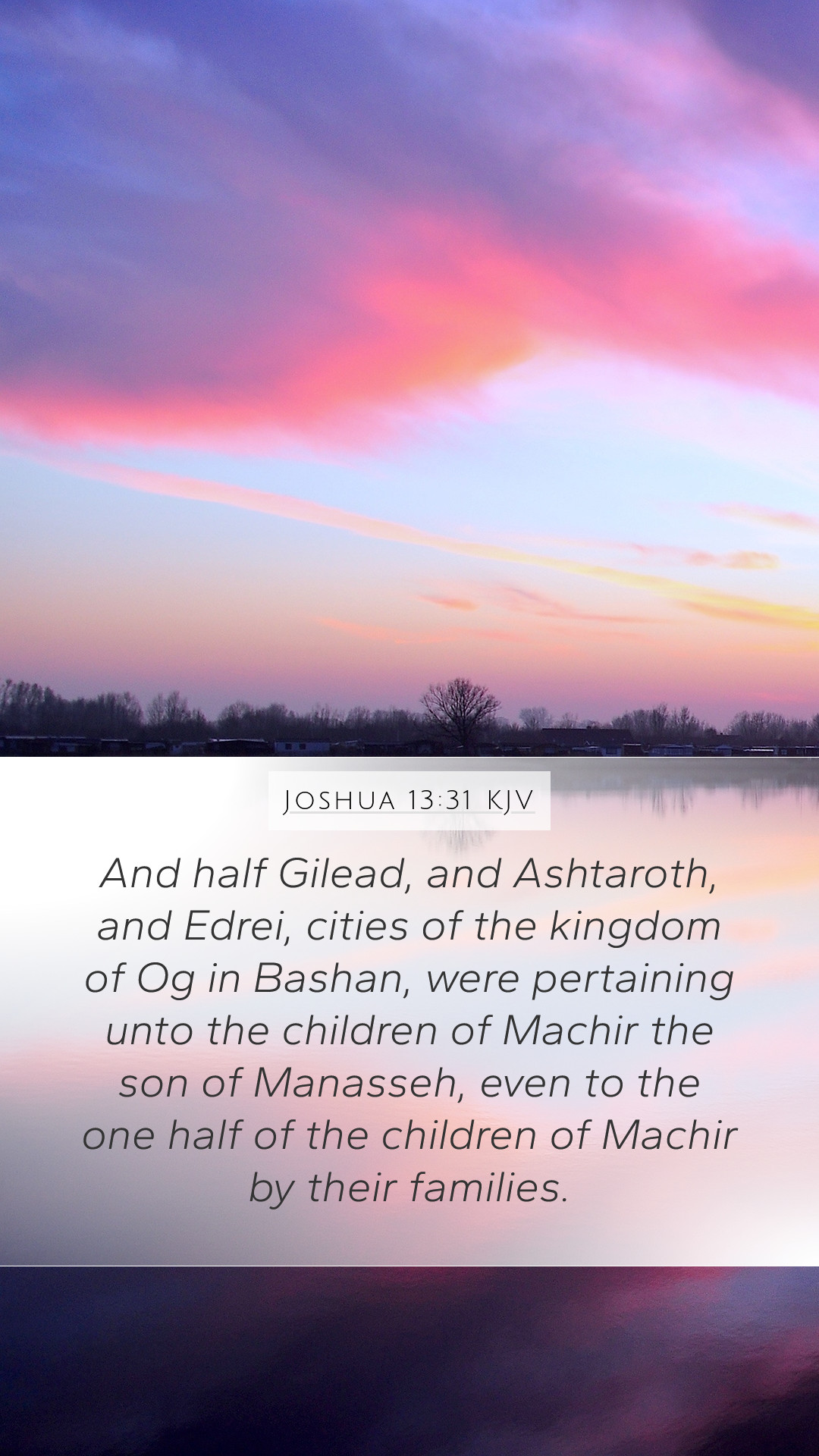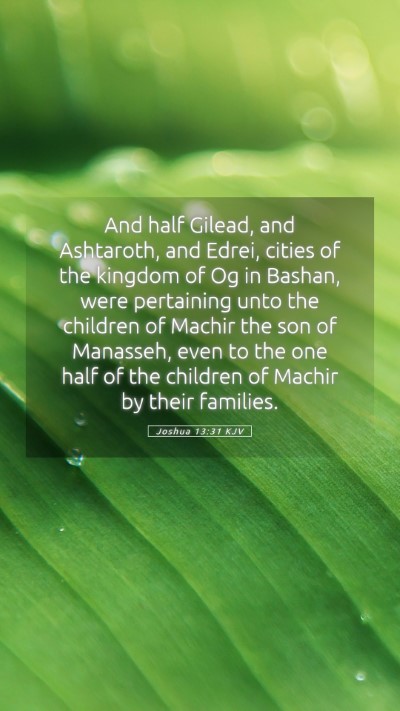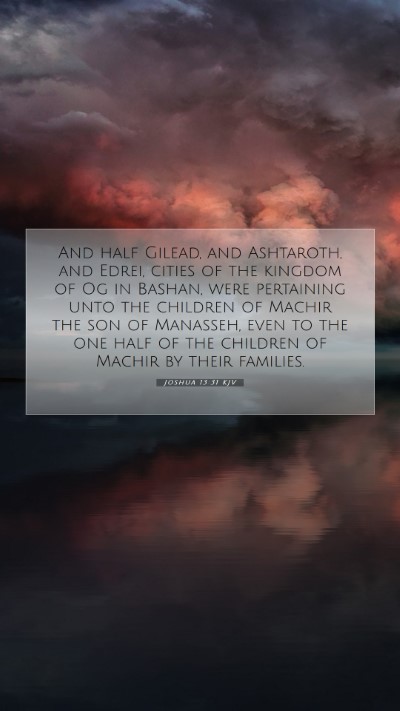Understanding Joshua 13:31
Joshua 13:31 states:
"And half Gilead, and the region of the Geshurites and Maachathites, all the kingdom of Og, which was in Bashan, which was called the land of giants."
Bible Verse Meanings
In this verse, we see the territories allocated to the tribes of Israel, specifically focusing on the land held by the tribe of Manasseh. The mention of Gilead and the kingdoms of Bashan underscores the significance of heritage, division of land, and the fulfillment of God's promises to His people.
Bible Verse Interpretations
This portion of scripture details God's faithfulness in distributing the land amongst the tribes, as He had promised. It serves as a reminder of not only the physical aspects of the land but also its spiritual implications for the Israelites. By including specific regions like the Geshurites and Maachathites, the verse emphasizes the extent of the land that was conquered and claimed.
Bible Verse Understanding
Scholars, including Matthew Henry, emphasize that this land represents God's covenant with Israel. The title “land of giants” refers to the formidable presence that these regions possessed, symbolizing the challenges and fears that the Israelites faced during their conquest. With Albert Barnes, this highlights God's sovereignty over these areas.
Bible Verse Explanations
Adam Clarke points out the historical and geographical significance of these lands. The regions mentioned, particularly Bashan, known for its strength and resilience, served as a reminder of the Lord's power to deliver and give victory over seemingly insurmountable odds.
Scripture Analysis
This verse can be seen as part of a larger narrative involving the culture, beliefs, and history of the Israelites during their establishment in the Promised Land. The careful delineation of boundaries is not just administrative; it establishes identity and belonging for the tribes of Israel.
Biblical Exegesis Insights
Analyzing this scripture through a lens of rhetorical and theological synthesis reveals that Joshua 13:31 is more than a mere listing of lands. It reflects God's continuing engagement with His people and the historic roots from which they draw strength.
Bible Study Insights
- This verse encourages engagement in Bible study groups to further explore the historical context of these territories.
- Online Bible study resources can enrich one's understanding, offering various interpretations and commentaries.
- Exploring Bible study guides helps us draw lessons from the inheritance of land and its application in our lives today.
Cross References
- Numbers 21:33-35 - The conquest of Og and the significance of the battles.
- Deuteronomy 3:10 - The mention of Bashan as a land of giants.
- Joshua 12:4-5 - Overview of the kings defeated and territories taken.
Conclusion
In closing, Joshua 13:31 serves as a powerful reminder of the fulfillment of God's promises and the identity of His people in the land. Through in-depth Bible verse analysis, we can appreciate how these passages relate to the overarching story of redemption and divine providence.


